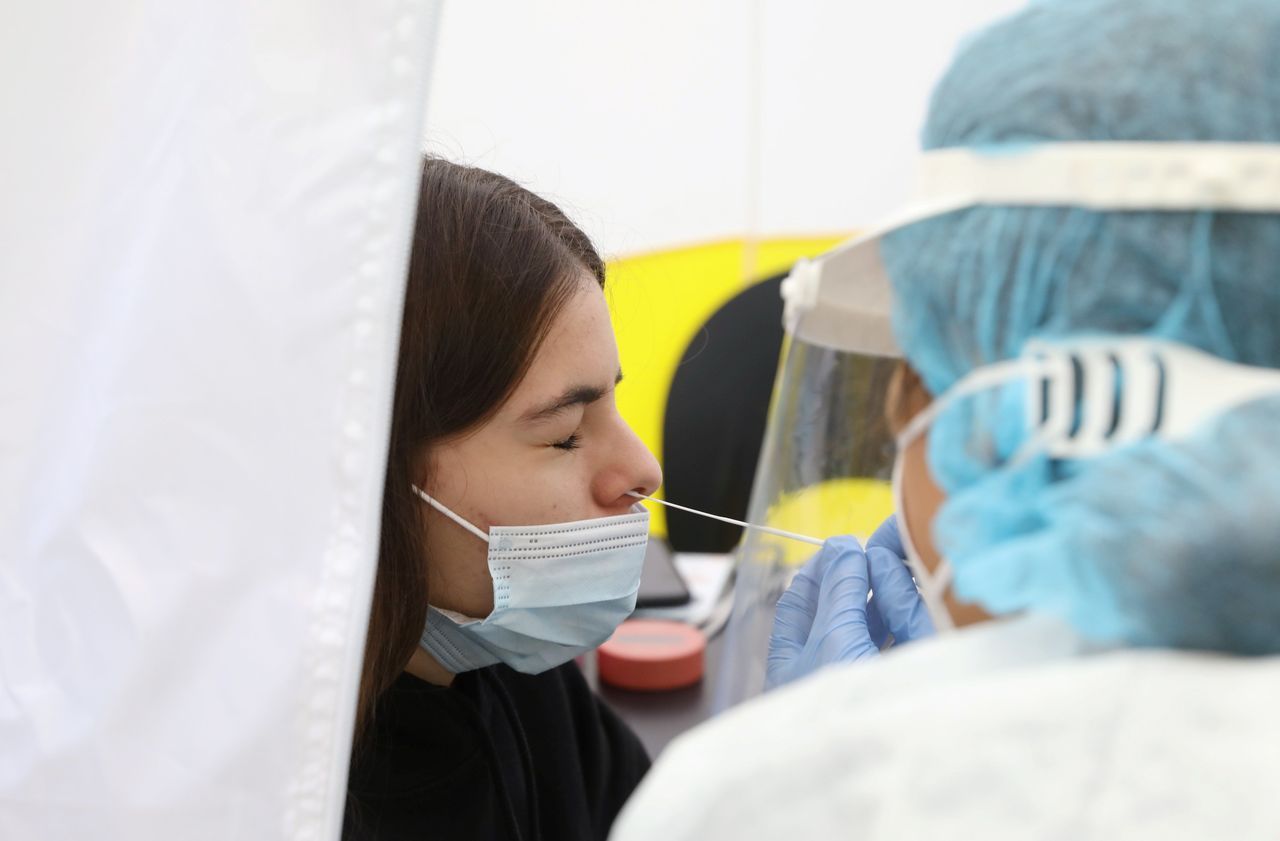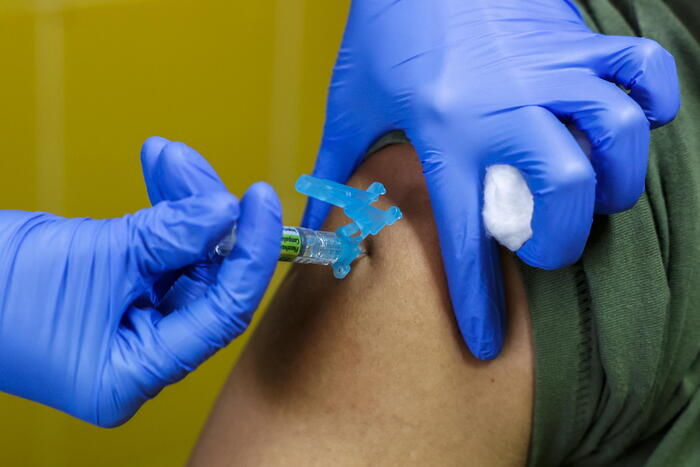We sensed it, it is now confirmed.
Antigenic tests are not taken into account in the calculation of the various indicators linked to screening, which are artificially reduced.
The actual incidence rate is, for example, 10% higher than that displayed today.
If this mitigates the decline in the epidemic observed on the curves of new cases in recent days, it remains very real.
READ ALSO>
Covid-19: how to explain the very sharp drop in new cases?
To understand, we must first of all remember what antigenic tests are.
Presented as an essential revolution to further test the population and allow control of the Covid-19 epidemic, they allow a diagnosis to be made in just 15 to 30 minutes, instead of several days with an RT-PCR test.
They have been deployed in France since October, first during experiments (in nursing homes, for example) then in pharmacies for the general public.
Out of 22,000 pharmacies located in the four corners of the country, 4,000 are already carrying out antigenic tests and this number could climb to 10,000 in the coming weeks, according to figures provided to us by Philippe Besset, the president of the Federation of Pharmaceutical Unions of France.
Less sensitive than RT-PCRs, antigenic tests are reserved primarily for symptomatic people "within a period of 4 days or less after the onset of symptoms", and not for simple contact cases.
"The idea is to detect very quickly, ideally before they are very symptomatic, very contaminating individuals so that they isolate themselves", explains general practitioner Yvon Le Flohic.
Nearly 290,000 antigenic tests in November
It was for a long time very complicated to draw up an assessment, for lack of precise figures communicated by the authorities.
"For the first time, we are counting the results of antigenic tests, which amount to 32,935 positive tests detected since the beginning of November", ended up indicating on Monday the Director General of Health, Jérôme Salomon.
But he did not provide any temporal or geographical details.
The Directorate General of Health tells us for its part that "nearly 290,000 antigenic tests have been carried out by authorized health professionals (doctors, pharmacists, nurses) since the beginning of November".
As often, it is in the weekly epidemiological point of Public Health France, published every Thursday evening, that we discovered the most information.
The one posted this Thursday, November 19, tells us that a total of 35,812 positive cases by antigenic test were identified on November 18.
In week 46 (November 9 to 15), 182,783 new cases were recorded, including 166,577 by RT-PCR.
The difference therefore gives 16,206 cases confirmed by antigenic test, or about 10% of those by RT-PCR.
As has been said, this 10% is not taken into account in the incidence rate, corresponding to the number of cases per 100,000 inhabitants.
As Public Health France indicates, instead of having a rate of 248 as displayed on its Geodes database, it is actually 272. The difference is even more obvious in certain regions.
In Île-de-France, which includes 29% of cases confirmed by antigen test in week 46, the incidence is underestimated by 19% (203 vs 241).
What artificially accentuate the drop in the number of new cases and therefore the incidence rate.
However, as Public Health France writes, "taking antigenic tests into account has not changed the overall trend which remains to decrease between weeks 45 and 46".
In other words, and as we had already explained on Monday, the real number of contaminations has really fallen since the very beginning of November, but a little less than what the figures indicated.
"A computerized way of the cross"
Let us now explain why antigenic tests are not yet taken into account in the incidence calculation.
Since Monday, November 16, pharmacists must in theory fill out the Si-Dep file themselves, which already includes all the RT-PCR tests since last May.
Until then, the antigenic tests were only taken into account in another file, ContactCovid, used by Medicare to carry out the tracing of cases and their contacts.
"The tracing took place, no confirmed case escaped us", certifies a source at the heart of the matter.
Health Insurance then transmitted the number of cases confirmed by antigenic test to Public Health France, which used it in its epidemiological bulletin.
Newsletter - Most of the news
Every morning, the news seen by Le Parisien
I'm registering
Your email address is collected by Le Parisien to enable you to receive our news and commercial offers.
Learn more
Entering antigenic test results into Si-Dep is proving to be a big headache for many pharmacists.
"It is a computerized way of the cross and it is not so easy to obtain the right identifiers", fulminates Philippe Besset.
The president of the FSPF indicates that in two days (Monday and Tuesday), only a quarter of pharmacists performing antigenic tests had obtained access to Si-Dep.
READ ALSO>
Covid-19: at the heart of antigen tests performed in pharmacies
This is why we will have to wait a little longer so that the antigenic tests are exploited directly via Si-Dep.
"We will soon take these antigenic tests into account in the calculation of all the finer indicators", indicated the Minister of Health, Olivier Véran, this Thursday evening at a press conference.
Public Health France indicates that this will happen "soon", without further details.
Same vagueness on the side of the Directorate General of Health, which specifies that the ministry "will soon have its own, via a reprocessing of the data entered in SI-Dep, the number of antigenic tests carried out at the regional level".
VIDEO. Coronavirus: this antigenic testing center gives results in 15 minutes
"It's a bit of a mess, we do not know exactly where the epidemic is at the time," comments Yvon Le Flohic, who officiates in the Côtes-d'Armor.
His department is fortunate to be relatively spared by the second wave, and the validation times for RT-PCR tests are lower than in large metropolitan areas.
As a result, few antigenic tests are still carried out there.
"We had less urgency to get started," smiles the doctor.








